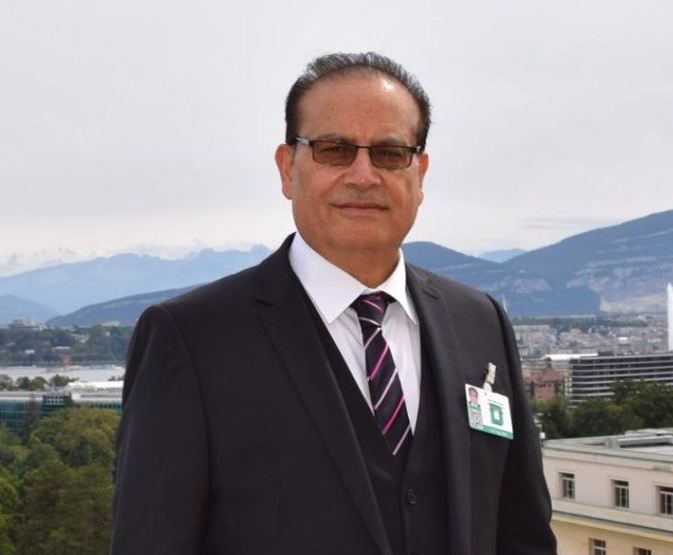By: Qamar Bashir
The elections in Pakistan held on 8th February 2024 were conducted in a tightly controlled environment and were marred by allegations of rigging, malpractices, and altering of election results through manipulation of Form 47, which is crucial for declaring candidates’ outcomes. The Election Amendment Act 2023 provides a remedy for aggrieved parties to seek redress from election tribunals constituted under Section 140 of the Election Act 2023. However, when the Lahore High Court provided judges to head the tribunals, the Election Commission initially employed delaying tactics and later introduced the Election Amendment Ordinance 2024. This ordinance empowered the Election Commission to appoint retired judges as presiding officers of the election tribunals, raising significant concerns.
The original Election Amendment Act 2023 stipulated that election tribunals should include sitting judges appointed in consultation with the Chief Justice of the High Court. This process ensured judicial oversight and impartiality in handling election disputes. By bypassing this consultation, the Election Commission’s appointment of retired judges may compromise the tribunals’ impartiality and undermine public confidence in the election dispute resolution process.This could result in decisions that are biased towards the status quo, thereby legitimizing fraudulent election practices and denying justice to aggrieved parties.
The mover of this ordinance most likely could be the election commission itself which may also be a defendant in election rigging allegations. By controlling the appointment of presiding officers to the election tribunals, the Election Commission can exert undue influence over the tribunal’s outcomes. This undermines the fairness of the adjudication process and erodes public confidence in the electoral system.
This Ordinance also reflects the perceived conflicts of interest among its key stakeholders. Allegedly, those involved in drafting and approving the ordinance, including the Ministry of Law and Justice, the Cabinet, the Prime Minister, and the Acting President, may also be the beneficiaries of the rigged elections.
This presents a clear conflict of interest, as these individuals and entities may be directly implicated in election irregularities. Allegedly, they are the ones who stand to gain from the ordinance, which compromises the integrity of the electoral process and the principle of natural justice. For instance, candidates from the PTI, who claim their mandate was stolen, may file complaints against these very Public servants. The ordinance appears to shield these stakeholders from scrutiny by empowering the Election Commission to appoint retired judges to election tribunals without judicial consultation, potentially influencing the tribunal’s decisions in their favor.
This Ordinance also seemed to have violated the principle of natural justice, which demands impartiality and fairness in legal proceedings. The conflict of interest inherent in the involvement of those accused of benefiting from electoral fraud in the drafting and approval of the ordinance contravenes fundamental legal principles. Natural justice requires that no one should be a judge in their own cause (nemo judex in causa sua) and that everyone should have the right to a fair hearing (audi alteram partem).
In a hypothetical scenario, if impartial presiding officers were appointed to the Election Tribunals, they would deliver verdicts without any fear or favor. This could potentially result in many complaints being decided in favor of appellants or complainants, thereby fundamentally altering the composition of the National Assembly, as well as the Provincial Assemblies of Punjab, Sindh, and Balochistan. This scenario would necessitate the formation of new governments, effectively dismantling the current power structures and representing a significant blow to those accused of masterminding the election manipulations.
This led to visualization of another hypothetical scenario, if PTI were to form the government alone or in coalition with other parties at the center and in Punjab, it could lead to significant political shifts. In such a scenario, cases against PTI’s founder, leadership, and workers might be quashed. The narrative surrounding the events of May 9 could shift to the opposite direction, effectively resetting the political chessboard with most power pieces in PTI’s control.
The prospect of such a shift would undoubtedly lead to renewed political and economic instability. The current ruling coalition, facing the risk of losing power, might employ various tactics to maintain control, including further manipulation or delaying tactics. The opposition, empowered by favorable tribunal decisions, would push for immediate changes, creating a volatile political environment. Such an outcome would be highly unacceptable to the entrenched power structures, as it would signify a dramatic loss of influence and control. Consequently, the stakes for controlling the decisions of the election tribunals become even higher, making it imperative for those in power to ensure that tribunal outcomes are favorable to them.
However, the argument’s strength relies heavily on the assumption that independent tribunals would universally rule in favor of the complainants. While this is plausible given the allegations, it’s not guaranteed. Additionally, the consequences of such rulings, while significant, are speculative and contingent on many variables, including the reactions of various political actors and the public.
The ordinance has already been challenged in the Lahore High Court on the grounds that appointing retired judges of the High Court and District Courts undermines the independence of the judiciary and attempts to control tribunal outcomes in favor of candidates who benefited from manipulated election results.
By compromising the integrity of election tribunals, the ordinance potentially deprives candidates and voters of the opportunity to seek genuine redress for electoral grievances. This situation calls for serious judicial review and possible legislative action to restore the original provisions of the Election Amendment Act 2023, thereby upholding the principles of judicial independence and democratic governance.
By: Qamar Bashir
Former Press Secretary to the President
Former Press Minister to the Embassy of Pakistan to France
Former MD, SRBC












